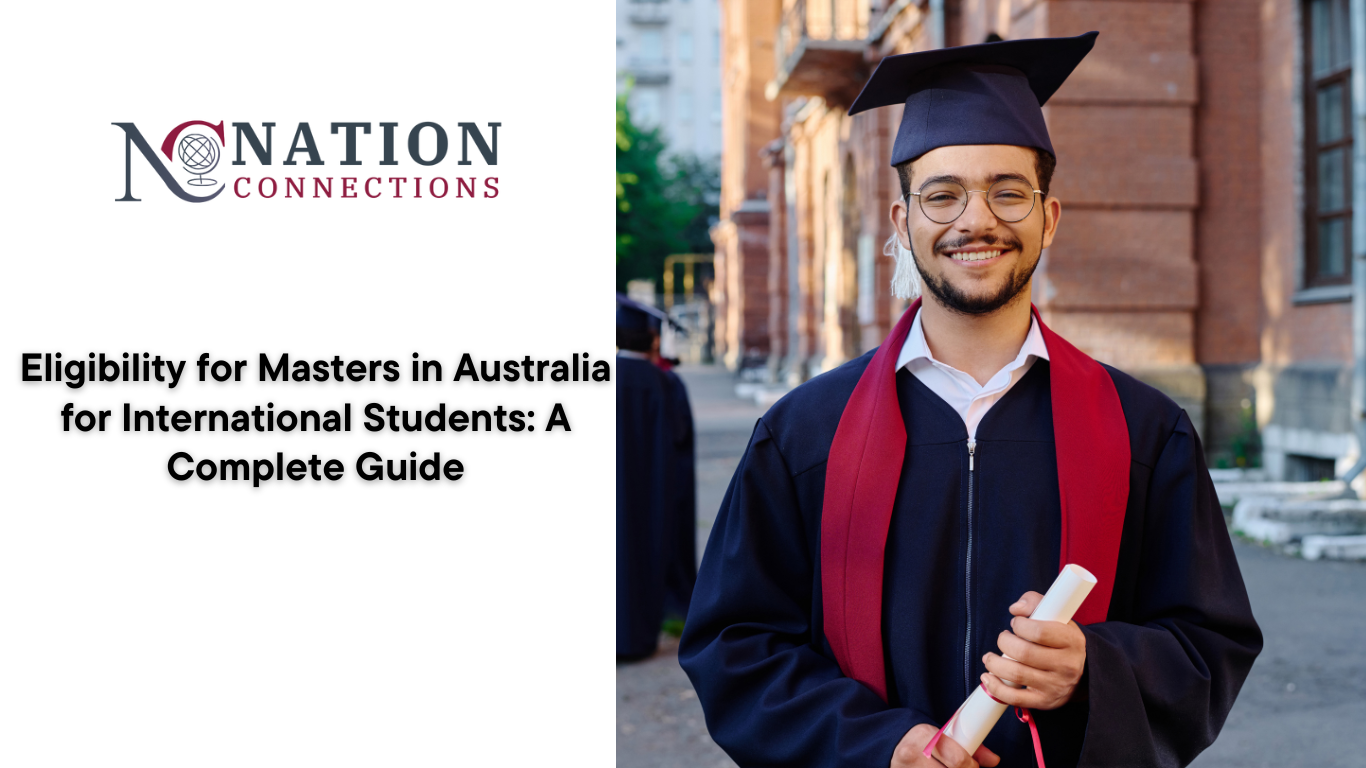Australia has become one of the top study-abroad destinations for international students—thanks to its globally ranked universities, diverse culture, post-study work opportunities, and industry-focused academic programs. If you’re planning to pursue a Master’s degree in Australia, understanding the eligibility criteria is essential before applying.
This blog walks you through everything you need to know: academic requirements, English proficiency standards, work experience criteria, documents needed, and course-specific prerequisites.
1. Basic Eligibility Criteria for a Master’s Degree in Australia
While requirements vary across universities and courses, the following are the general standards international students must meet:
1.1. Academic Qualifications
A recognized bachelor’s degree (usually equivalent to an Australian Bachelor’s Degree).
Minimum 65% or above in undergraduate studies for most top universities.
Some programs accept students with slightly lower academic scores, depending on the institution.
Course-specific requirements:
Engineering: Bachelor’s in engineering or a related field.
Business & Management: Bachelor’s degree; some accept any discipline.
Computer Science / IT: CS/IT background preferred; bridging courses may be available.
Health Sciences: Strict prerequisites and may require relevant bachelor’s coursework.
Education / Teaching: Teaching qualifications or related bachelor’s degree.
2. English Language Proficiency Requirements
All international students must demonstrate English proficiency unless exempt based on country or prior education.
Commonly Accepted Tests & Minimum Scores:
| Test | Minimum Score |
|---|---|
| IELTS | Overall 6.5 (no band less than 6.0) |
| TOEFL iBT | 79–90 overall |
| PTE Academic | 58–65 overall |
| Duolingo (select universities) | Typically 110–120 |
Some programs like Law, Medicine, Nursing, and Teaching may require higher English proficiency (e.g., IELTS 7.0+).
3. Work Experience Requirements (Course Dependent)
Not all Master’s programs require professional experience, but some specialized or professional degrees do.
Programs that often require 1–3 years of experience:
MBA and Executive MBA
Master’s in Public Health (varies)
Master of Social Work
Master in Data Analytics / Cybersecurity (optional but preferred)
Education and Teaching programs
Universities may request:
A detailed CV/Resume
LORs (Letters of Recommendation)
A Statement of Purpose detailing career goals and experience
4. Additional Requirements for Specific Courses
4.1. Portfolio or Creative Work
For programs like:
Master in Design
Architecture
Fine Arts
Media & Film
Students may need to submit:
Portfolio
Showreel
Sketches or creative samples
4.2. GMAT/GRE Scores
Not required for most courses.
But some universities may request:
GMAT for MBA (550+ typical)
GRE for competitive STEM programs (optional)
5. GTE Requirement (Genuine Temporary Entrant)
Australia assesses international students through the GTE requirement, ensuring:
You genuinely intend to study in Australia
You can support yourself financially
You will comply with visa conditions
Students must write a GTE Statement summarizing academic and career intentions.
6. Financial Eligibility
You must show evidence of financial capacity, which includes funds for:
Tuition fees
Living expenses (AUD 24,505/year approx.)
Travel costs
This may be required during visa applications or by some universities during admission.
7. Required Documents for Master’s Admission in Australia
Prepare these documents before applying:
Academic transcripts and degree certificates
English proficiency test scores
Copy of passport
CV/Resume
Statement of Purpose (SOP)
Letters of Recommendation (LORs)
Portfolio (if applicable)
Work experience documents (if required)
8. Age Requirements
There is no strict upper age limit to study a Master’s degree in Australia.
However, career continuity and intent matter during GTE assessment.
9. Eligibility for Post-Study Work Visa (PSW)
After completing a Master’s degree, international students may apply for a Temporary Graduate Visa (485 Subclass).
Eligibility includes:
Completing a 2-year academic program (in most cases)
Meeting English proficiency and health requirements
10. Popular Universities Offering Masters in Australia
University of Melbourne
University of Sydney
UNSW Sydney
Monash University
University of Queensland
Australian National University
University of Adelaide
RMIT University
University of Western Australia
Curtin University
Conclusion
Australia offers excellent academic programs, strong career opportunities, and a welcoming environment for international students. Meeting the eligibility requirements—academic qualifications, English proficiency, financial capacity, and course-specific criteria—is the first step toward studying in this top global destination.
If you need personalized guidance based on your academic background and chosen course, I can help you assess your eligibility and shortlist universities.









